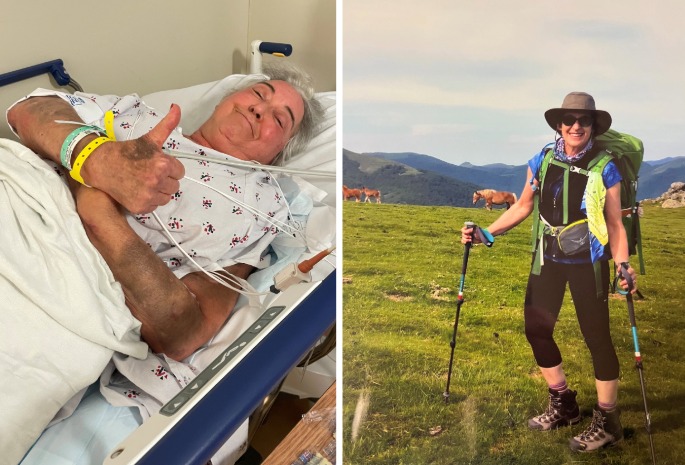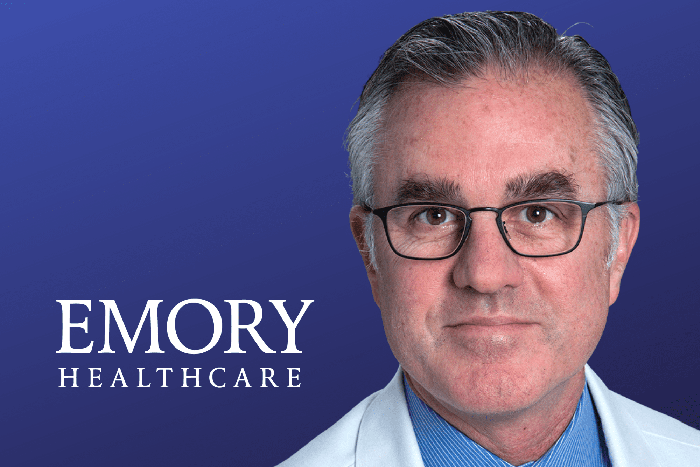Emory Brain Health Center delivers personalized care for brain and behavioral conditions by bringing together top specialists across neurology, psychiatry, neurosurgery and rehabilitation. Nicholas Boulis, MD is an Emory Healthcare neurosurgeon who specializes in functional neurosurgery.
Functional neurosurgery focuses on improving or restoring nervous system function in the brain and spinal cord. Dr. Boulis treats people with:
- Craniofacial pain syndromes
- Movement disorders such as Parkinson’s disease
- Peripheral nervous system injuries, including brachial plexus avulsion
- Peripheral nerve tumors
- Severe pain that doesn’t respond to other treatments (severe refractory pain)
- Trigeminal neuralgia, a nerve condition that causes sudden, severe facial pain
Functional neurosurgeons like Dr. Boulis try to pinpoint how disrupted circuits in the nervous system cause problems such as pain and tremors. Then, these specialists counteract the imbalanced signals, either by interrupting the circuit or implanting electrodes to control it.
Astra and Stephen met with Dr. Boulis a few weeks after her appointment with Dr. Zelinski. The three of them discussed her MRI results and pain symptoms. Then, Dr. Boulis told them about the dorsal root entry zone (DREZ) procedure.
DREZ is an eight- to 10-hour surgery that uses a surgical microscope to locate the torn-away nerve roots near the spine. To stop the pain, the surgeon uses an electrode or other device to kill the overactive spinal cord cells with a precise electrode.
DREZ is available at only about 10 medical centers in the country. “The surgery carries high risk because you are destroying damaged spinal cord cells located very close to healthy wires that connect the brain to lower parts of the spinal cord,” Dr. Boulis says. “If you miss, you can cause permanent damage that leads to numbness or weakness.”
In the hands of a skilled, experienced neurosurgeon, however, DREZ can be life-changing. “Most of my patients experience relief—often, significant relief,” Dr. Boulis says. “Our complication rate is very low. DREZ is something I may recommend when patients have tried everything else.”
Dr. Boulis explained the procedure and potential risks to Astra, and she didn’t hesitate. “I had already researched Dr. Boulis’s practice online, and I could tell from talking with him how passionate he is about helping patients,” Astra says. “I booked the surgery before we left his office. There was no doubt this was the next step.
“I was completely confident about the surgery, especially since it would be at Emory,” she adds. “We’re so blessed here in Atlanta to have great hospitals, and Emory is a class above the rest for complex treatments like this.”


 Over the next four days, Astra had six surgeries to repair her broken bones and remained in the hospital for three weeks. She returned home in mid-January to begin the long recovery process, which involved rest, physical therapy and learning to do everything left-handed. Stephen and the kids, Astra’s mom and an army of friends rallied around her, providing round-the-clock care.
Over the next four days, Astra had six surgeries to repair her broken bones and remained in the hospital for three weeks. She returned home in mid-January to begin the long recovery process, which involved rest, physical therapy and learning to do everything left-handed. Stephen and the kids, Astra’s mom and an army of friends rallied around her, providing round-the-clock care. Astra’s surgery was on Valentine’s Day, 2025. When she woke up in the intensive care unit the next morning, she felt a difference right away. “It felt like someone had unplugged my arm—the intense, shooting pain was gone,” Astra says. “When Dr. Boulis came to see me in the ICU, I couldn’t stop telling him how amazing he is and how grateful I was for the relief.”
Astra’s surgery was on Valentine’s Day, 2025. When she woke up in the intensive care unit the next morning, she felt a difference right away. “It felt like someone had unplugged my arm—the intense, shooting pain was gone,” Astra says. “When Dr. Boulis came to see me in the ICU, I couldn’t stop telling him how amazing he is and how grateful I was for the relief.”

